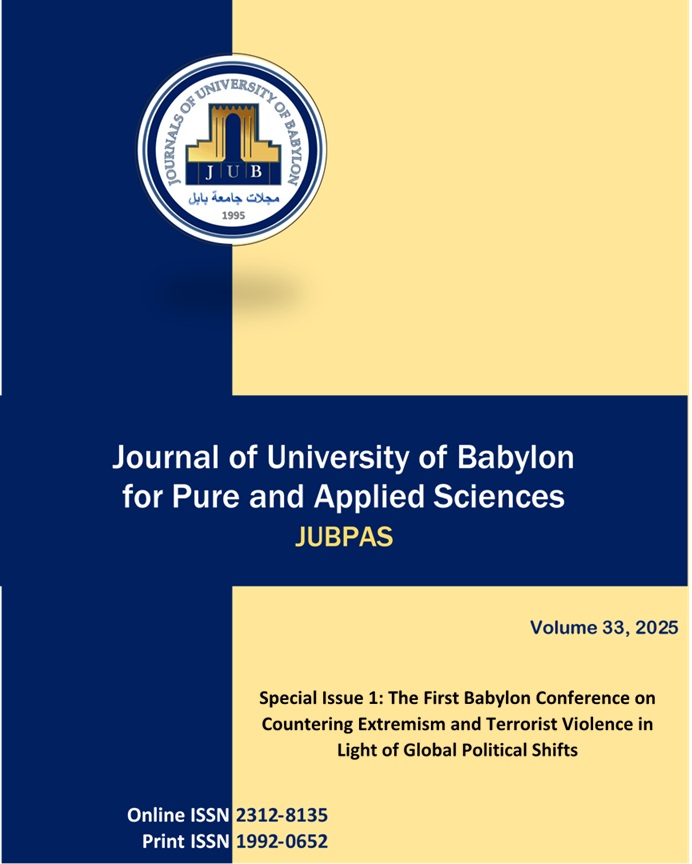Identifying The Nature of Security Threats Associated with Terrorist Digital Content and Its Impact on Cyber Genocide
Main Article Content
Abstract
This study examines the growing conflict between the need to combat online terrorist content and the fundamental principles of expression freedom and knowledge preservation. While the current model of content moderation responding to legitimate security threats, it poses a significant and under-researched risk: information genocide—the systematic devaluation, silencing, and annihilation of knowledge systems through digital erasure.
By analyzing the technical architecture of algorithmic moderation and the geopolitical forces, that shaping content policies and legal frameworks governing online discourse. The study highlights the crisis of balancing digital security with the protection of fundamental rights. Strict censorship measures can have negative counterproductive effects, such as inadvertently destroying vital evidence of human rights violations, silencing legitimate counter narratives, and eroding the digital cultural record.
The study analyzes the cyber risks associated with terrorist content, critiques the opacity and biases of automated systems, and conceptualizes digital epistemic genocide as a significant harm. It concludes by proposing a multi-stakeholder framework for rights-preserving content governance and calling for a paradigm shift from blunt censorship to careful regulation that balances proactive removal with robust archival preservation.
Article Details
Issue
Section

This work is licensed under a Creative Commons Attribution 4.0 International License.
